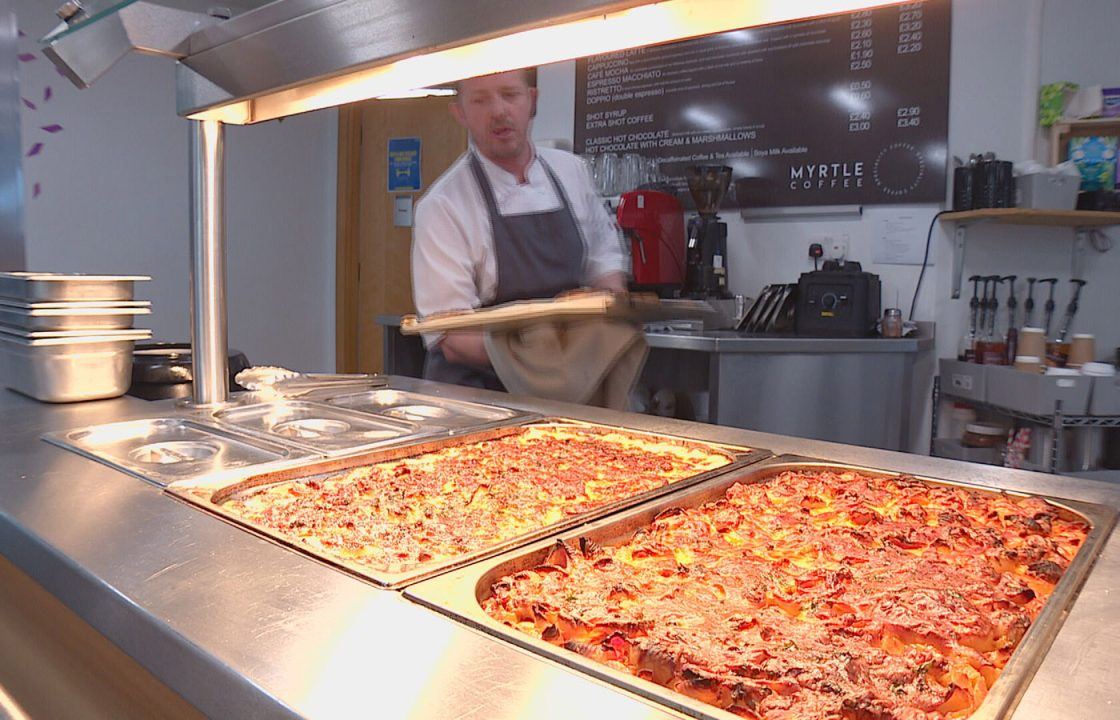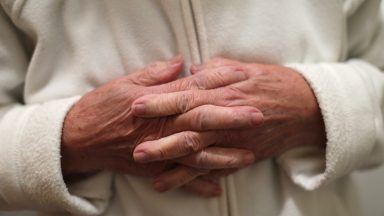Charities are warning that people on the lowest incomes are being forced into making “impossible choices” about how often they eat and which foods they buy.
Food is now the frontline of the cost of living crisis with increasing numbers of Scots simply unable to afford basic essentials.
“Increasingly people that are coming to our services don’t talk about choices. They talk about how they can survive,” said Angela Moohan, an anti-poverty campaigner for more than three decades.
She now runs The Larder in Livingston, a community enterprise that is trying to tackle the cost of food crisis with dignity.
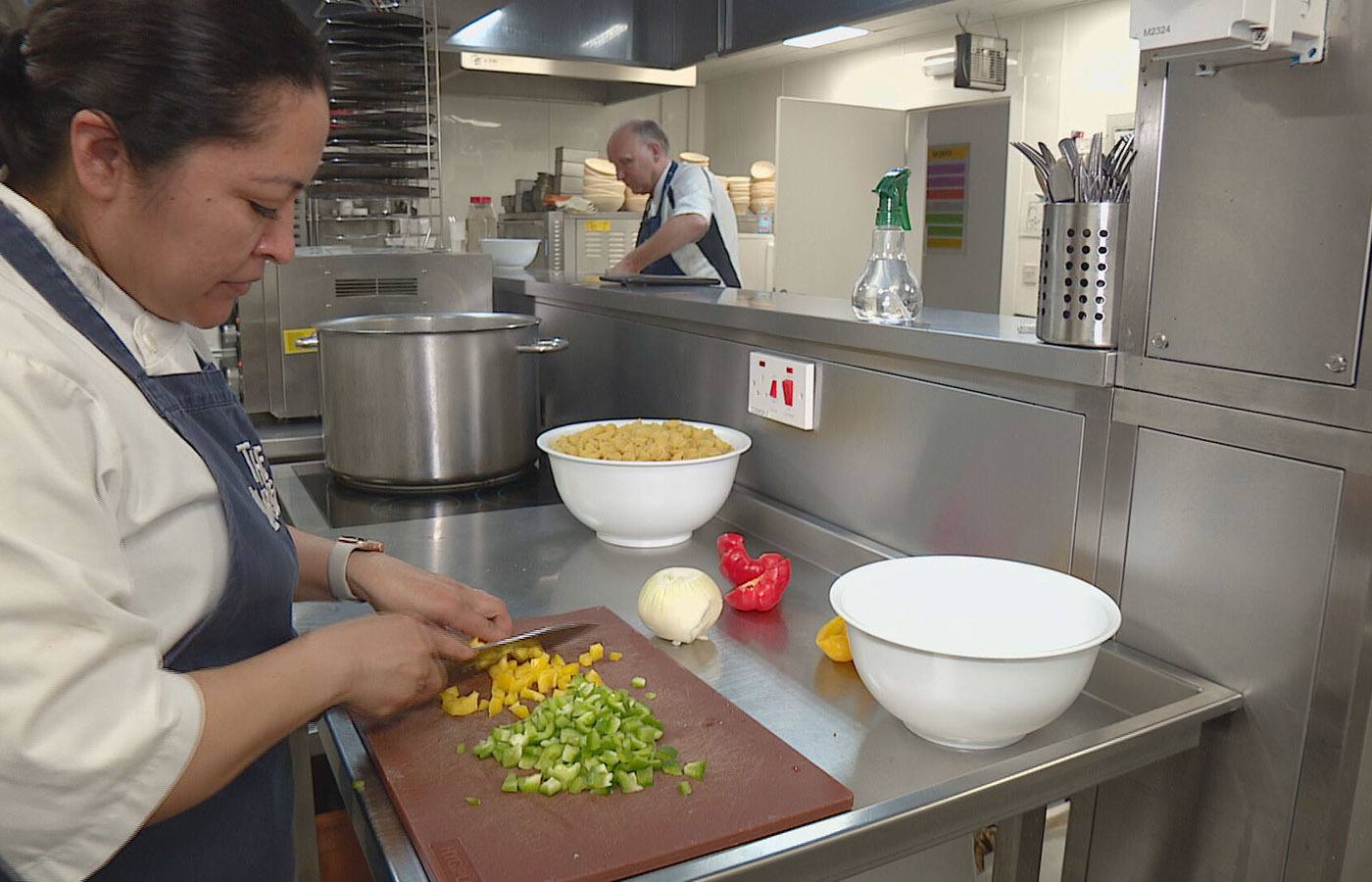 STV News
STV News“There are increasing numbers of people that can’t afford to eat,” she told Scotland Tonight. “They can’t afford to give themselves three meals a day. You’ll have heard the stories of poor families having to choose whether to feed themselves or their children.”
The Larder provides a range of support services including The Catalyst Kitchen and The Community Meal.
One involves nutritious, high-quality meals being distributed throughout West Lothian to some of the region’s most in need.
The other allows people to enjoy a three-course meal at a nearby community hub for just £5.
But demand is far outstripping supply.
Ms Moohan said: “We have a waiting list, we can’t deliver the services to everybody that needs those services and that waiting list – its increasing and increasingly were seeing people that are in work and not just people on low incomes, people that would considering themselves to be quite wealthy.”
After supporting local people through the Covid pandemic and then the first phases of the cost of living crisis, there was hope that by now the worst of the last few years would have passed.
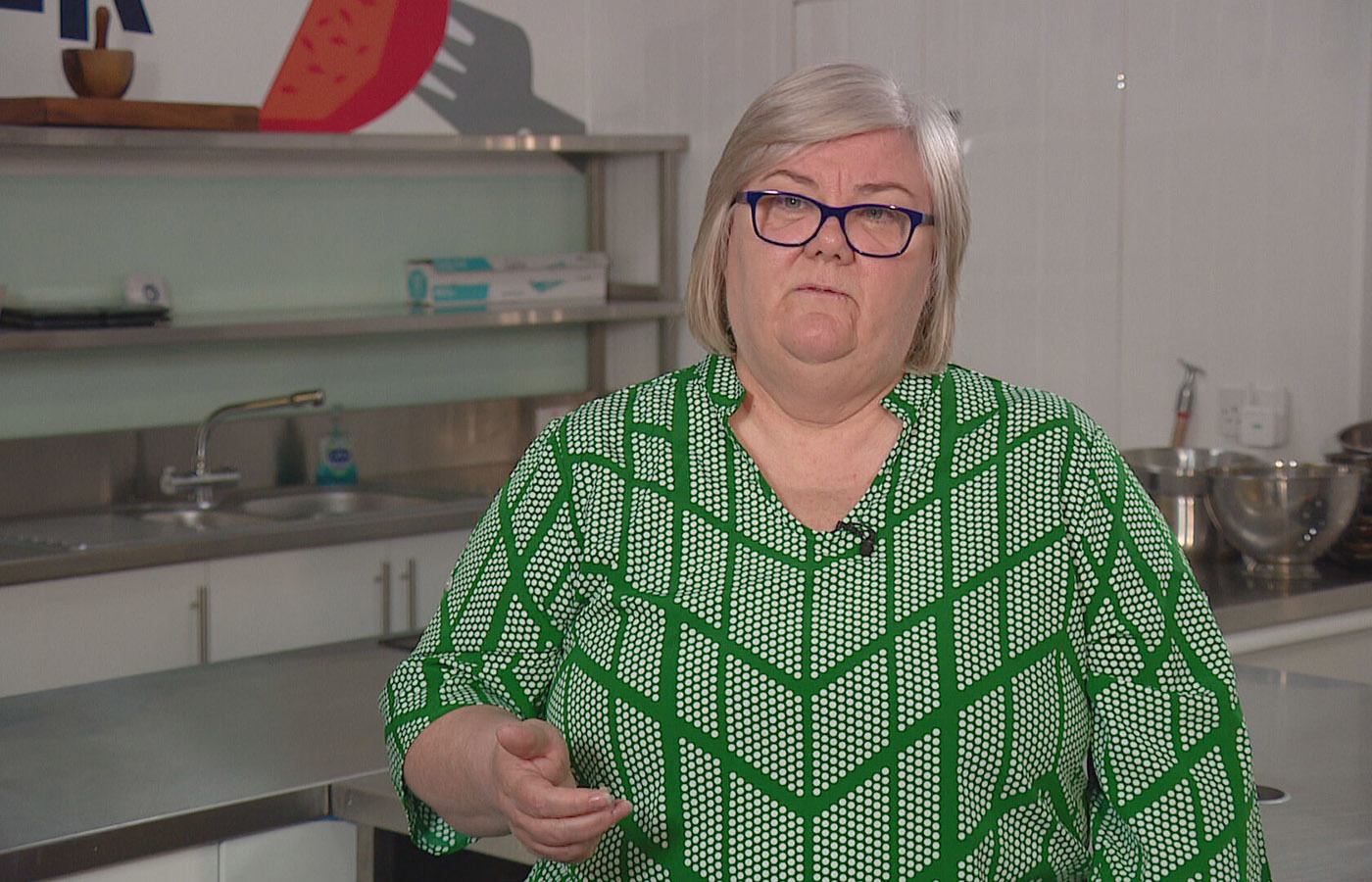 STV News
STV NewsInstead Ms Moohan believes the situation is getting more challenging, and that people are worryingly reluctant to come forward.
She said: “Increasingly there is a number of people that haven’t eaten for days they’re referred to our services and there are people out there that won’t ask for help.
“Those people that are struggling, we know that those people that are struggling but they don’t want to ask for help.
“Also increasingly, we’re seeing young men who haven’t eaten for three and four days and then maybe reach out by help and that meal that we are able to provide for them as seen as a lifeline”
“This is a disgrace; we should be ashamed of that in Scotland in 2023. There shouldn’t be anybody in such a wealthy country that has to ask for support to enable them to feed themselves and their family. It’s wrong and we have to say its wrong.”
That demand is now going hand in hand with less surplus food being made available and less donations being made.
“Recovered food is becoming more and more difficult for us to access, so that means we have to then buy for people to purchase in our community shop,” Ms Moohan added. “They’re buying it at a lower price than we are, and that’s not sustainable.”
That coupled with less funding, means The Larder is having to make difficult choices about how it operates in the future.
“For us to change our model when we are now in a cost of living crisis has been really really difficult,” said Ms Moohan.
“However, we don’t have sufficient levels of funding to continue providing free food and that doesn’t sit with the principles of food with dignity.
“So, we believe setting a charge for our community meal was the right thing to do, however we have seen a reduction in people attending the community meal since we took that choice”
It’s a similar story just 15 minutes down the road in Bathgate at Kidz Eco.
The organisation started as a second-hand children’s store helping families through the recession – it now helps those same families feed their children.
“I know for a fact that there are going to be families that are struggling to eat – absolutely,” said the shop’s founder Tracy Murdoch.
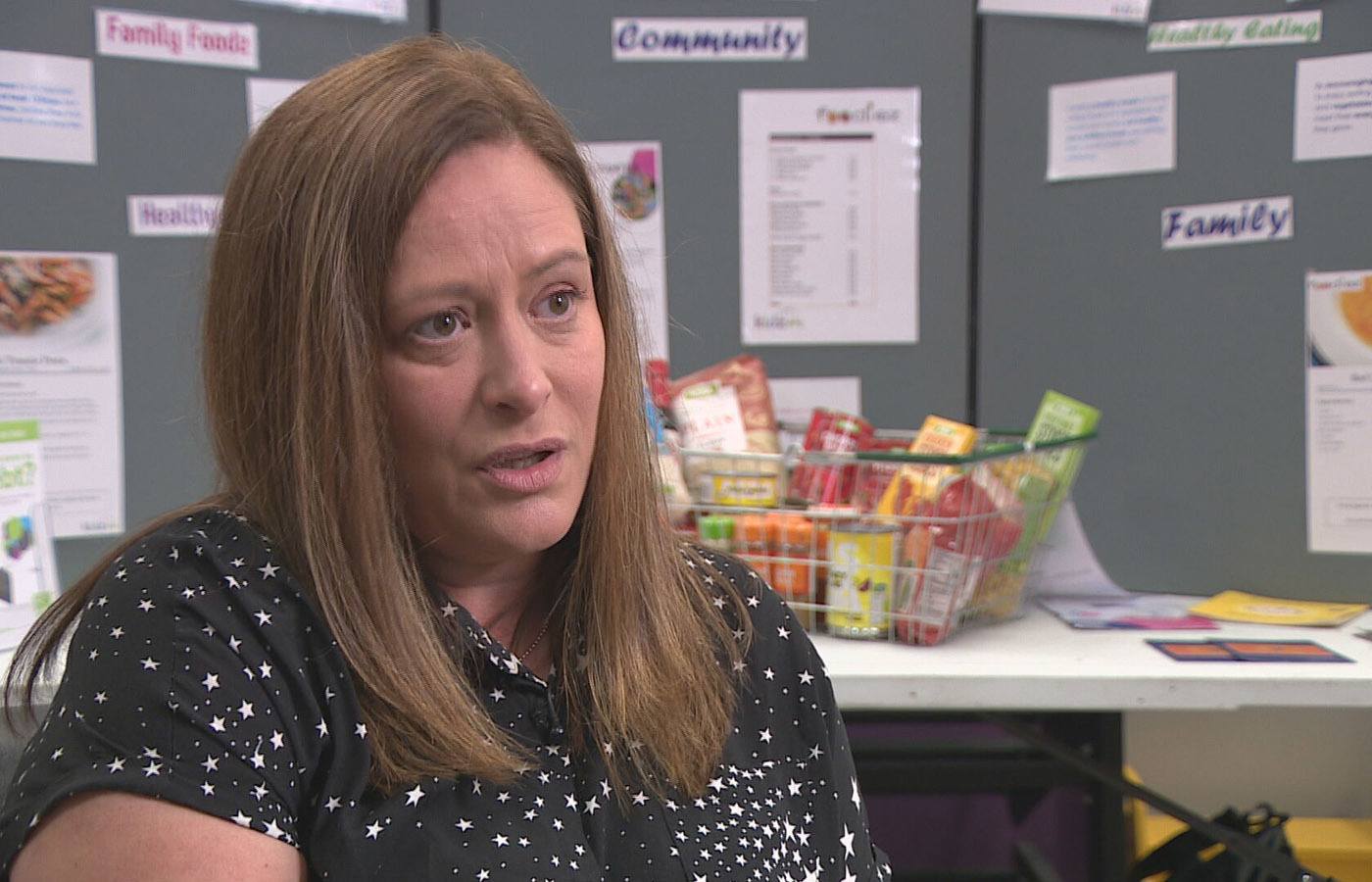 STV News
STV News“We have families that come every week, we have families that dip in and out and it’s when they’re worried their kids are going to go hungry.”
Kids going hungry is one thing – but there are fears that in some parts of the country, children are suffering from malnutrition such is the bite of the crisis.
“We are seeing a lot of families that are choosing not to buy fresh that are buying processed because they can ding it in the microwave rather than cook because of the energy costs, we have heard about people using their slow cooker or their air fryer, but people don’t always have access to that.
“The word on the street is that the money isn’t there to provide nutritional food for families.”
‘Helping others while fighting to support herself’
It’s 3pm on a Wednesday afternoon in Broxburn, West Lothian.
At the Strathbrook community hub, people are being served a three-course meal for only £5.
For those here however, it’s not just a cheap meal, it’s a lifeline – for many it represents the stark choice between going hungry or not.
Working away serving food and topping up drinks is Bonnie Quinn.
The mum of one spends her days helping others whilst fighting to support herself.
Like so many, she’s been sideswiped by the cruel one-two punch of a cost-of-living crisis morphing into a cost-of-eating one.
She said: “I have my budget and I know what I’m going to buy but sometimes when I go in [to the shops] its like double what it was meant to be and I cant afford it so I’m having to put my essentials back.”
“I’ve actually found myself not paying for my gas and electricity so I can afford to get my food that I need.”
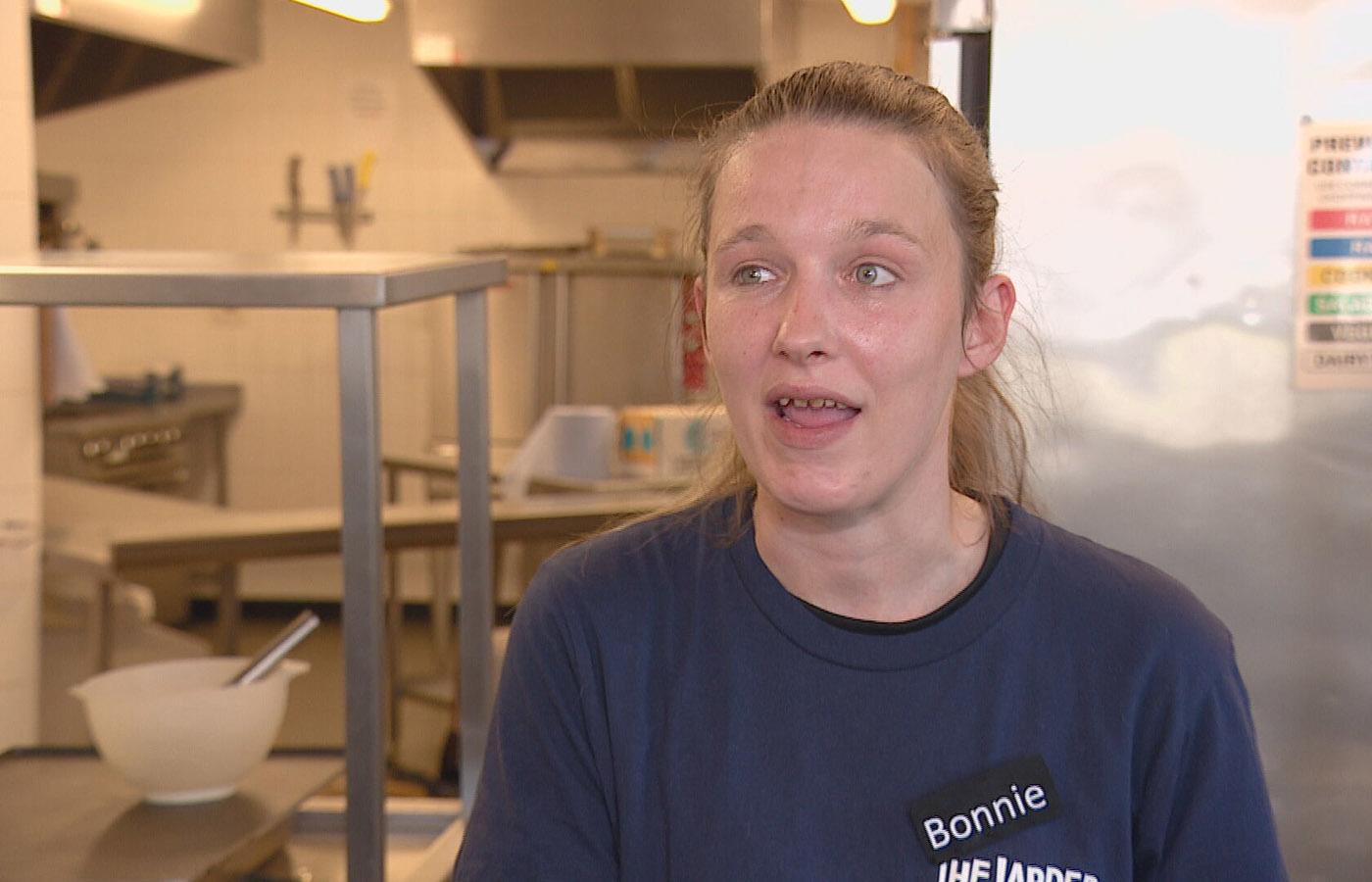 STV News
STV NewsLike any mother, Bonnie puts her son first and at the end of her shift she takes some food home to her family.
She said: “I’m already skipping meals just to make sure that my boy’s got everything that he needs. I’ve been underweight, I’m on a high protein diet and I can’t keep up with that because I’m focussed on making sure my boy, my family’s alright.”
“I have been ill in the past – I’ve had to be put on drips in the past and things like that, when I’ve just not eaten and that makes you really, really sick and things like that.”
Bonnie’s story might once have sounded extreme, but all the signs point to her situation becoming more common.
Statistics from the Joseph Rowntree Foundation show that almost a fifth of households say they’ve skipped meals or reduced portion sizes to cope with rising food costs.
More than forty percent of low income families have cut back on food. And more than one in ten families with more than three children have had to reduce the amount of money they spend on food for their children.
Michelle Hunter is a teacher and mother of six. But with food inflation running at more than 15% making ends meet is getting harder and harder.
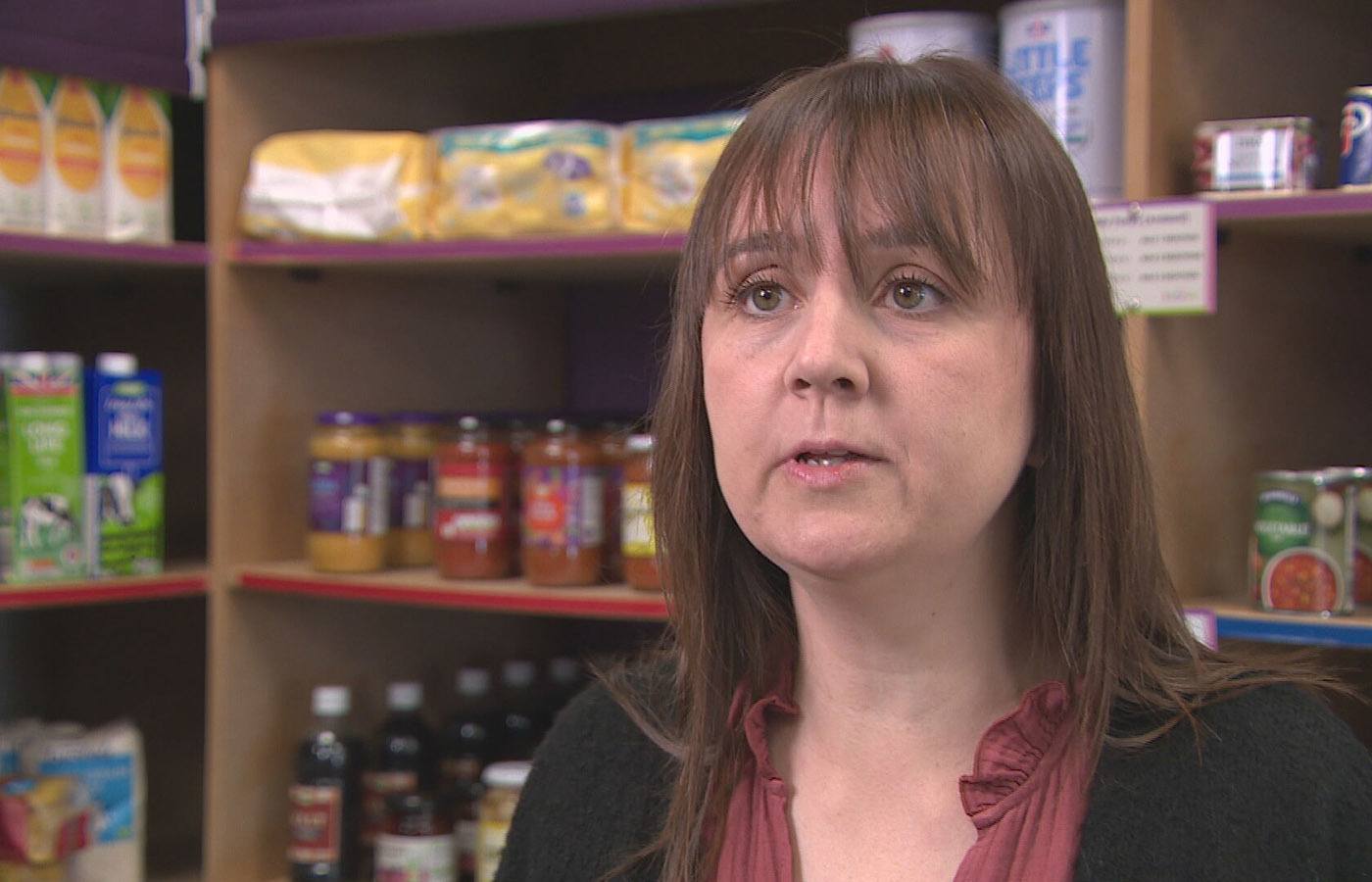 STV News
STV News“I mean quite often I’ll have cereal for tea and I wont eat with the kids,” she said.
“It is really really difficult, everything is so expensive as you know and its increasing and not really sure when that is stopping to be honest.
“I am genuinely concerned about the future and what its going to look like, not even in a months time, but in a weeks time because things are increasing – not just by a few pence but significantly and continuing to increase – so I do worry about how I’m going to sustain that and keep going.”
Follow STV News on WhatsApp
Scan the QR code on your mobile device for all the latest news from around the country


